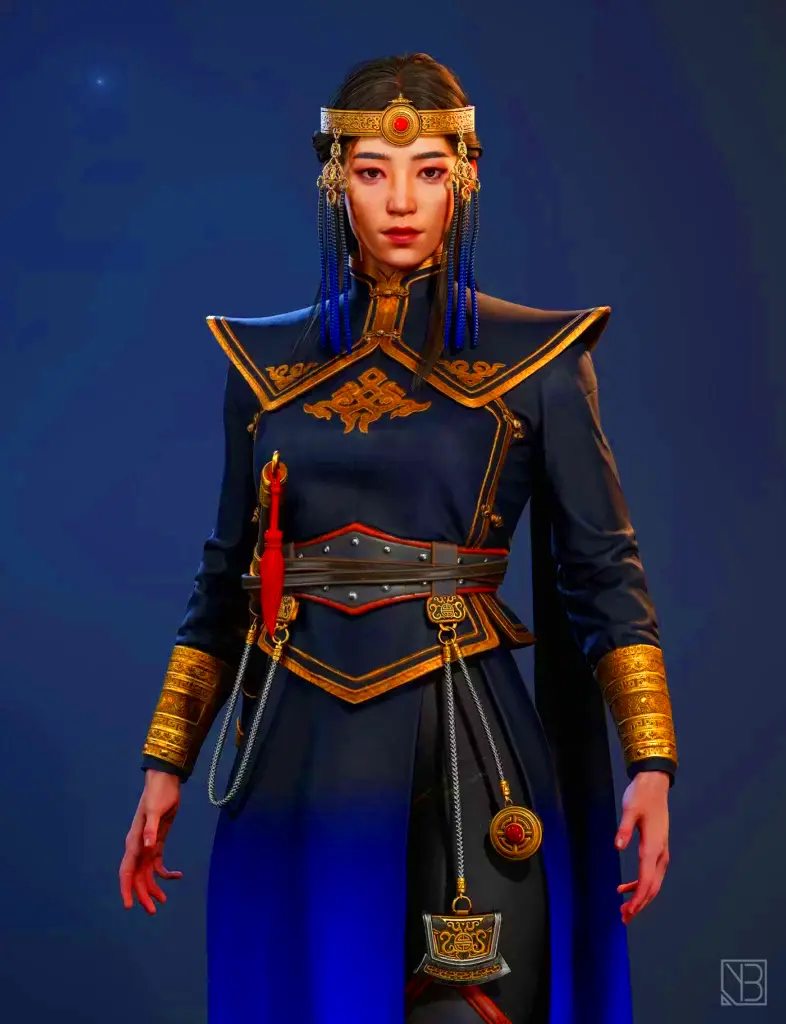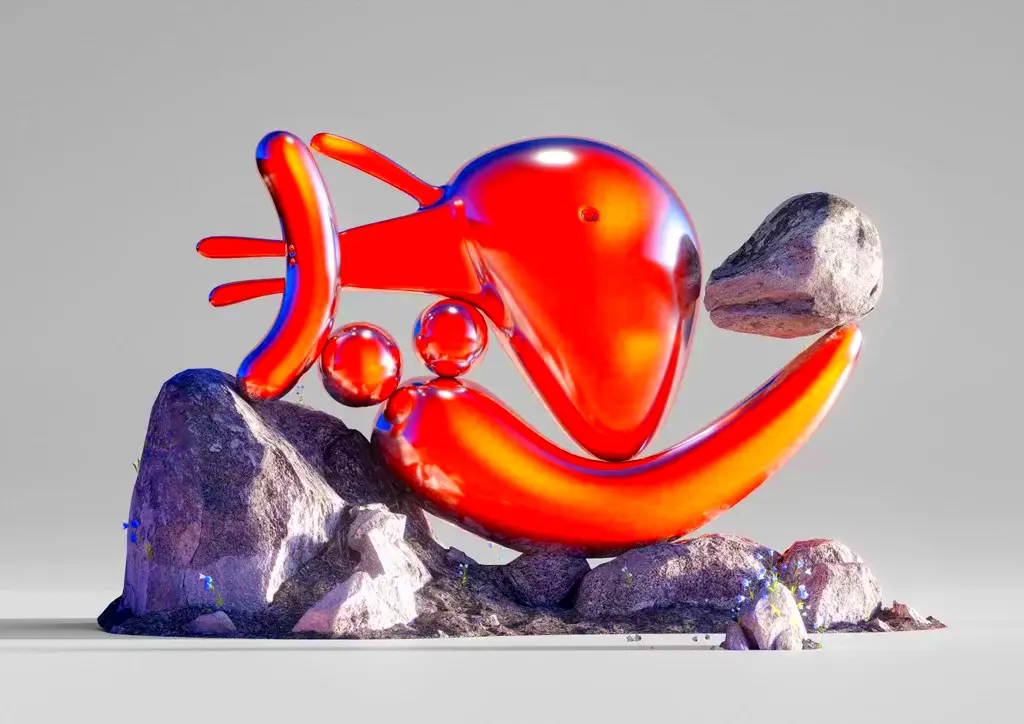Freelance 3D artists are in high demand, thanks to the growth of industries like gaming, film production, architecture, and virtual reality. As a freelancer, how much you can make depends on several factors, including your skill level, reputation, and the type of projects you take on. Many 3D artists enjoy the flexibility of freelancing, but it's important to understand how earnings work in this field. Whether you're just starting out or are an experienced artist, knowing the potential income helps you set realistic expectations and plan your career path effectively.
Factors Affecting Freelance 3D Artist Income

Several key factors influence how much a freelance 3D artist can earn. Understanding these can help you maximize your income and make informed decisions about your career.
- Experience: New freelancers might start with lower rates, but as you gain experience and build a portfolio, your earning potential increases.
- Skill Set: Specializing in certain skills (like modeling for games or animation) can lead to higher-paying opportunities.
- Industry: Different industries have varying pay scales. For example, the film and gaming industries tend to offer higher rates than real estate visualization projects.
- Location: While freelancing offers flexibility in terms of location, artists in countries with a higher cost of living often charge higher rates.
- Reputation: Building a solid reputation through consistent, high-quality work can lead to more clients and higher-paying projects.
Also Read This: How to Edit Gigs on Fiverr Mobile
Hourly Rates vs. Project-Based Pricing

When setting your rates as a freelance 3D artist, you’ll typically have two pricing models to choose from: hourly rates and project-based pricing. Each has its pros and cons, depending on the type of work and client preferences.
Hourly Rates
Charging by the hour is a common practice among freelancers. This method works well for projects that are open-ended or when it's difficult to estimate how long a task will take.
- Pros: It’s straightforward, ensuring you’re compensated for the time you spend on the project.
- Cons: It can be hard to predict your total income, and clients might be hesitant if they think the project will take longer than expected.
Project-Based Pricing
Project-based pricing involves setting a fixed rate for the entire project. This method is useful when you have a clear understanding of the project scope and timeline.
- Pros: Clients know the total cost upfront, and you’re rewarded for efficiency if you complete the project faster than expected.
- Cons: If the project ends up taking more time or resources than expected, you might end up earning less per hour.
Ultimately, the choice between hourly and project-based pricing depends on the type of work, the client’s needs, and your personal preference. Many experienced 3D artists combine both methods, offering hourly rates for certain tasks and project-based pricing for larger, well-defined projects.
Also Read This: Is Fiverr Safe for Credit Cards?
Average Earnings of Freelance 3D Artists

The earnings of freelance 3D artists can vary greatly depending on several factors like experience, location, and industry. On average, a freelance 3D artist can expect to earn anywhere between $20 to $75 per hour, with rates potentially going higher for specialists or experienced professionals. However, these figures can fluctuate based on the scope and complexity of the project.
In a year, many freelance 3D artists earn anywhere from $40,000 to $100,000 or more, especially if they work with high-profile clients or on large-scale projects. New freelancers typically start at lower rates, but with experience, reputation, and a solid portfolio, they can command higher fees.
Typical Earnings Breakdown
| Experience Level | Hourly Rate | Annual Earnings |
|---|---|---|
| Entry-Level | $20 - $40 | $30,000 - $50,000 |
| Mid-Level | $40 - $60 | $50,000 - $75,000 |
| Experienced | $60 - $100+ | $75,000 - $100,000+ |
These are average figures, and some top-tier 3D artists can earn even more, especially if they specialize in high-demand fields such as gaming, film, or virtual reality development.
Also Read This: How to Send a Request to a Buyer on Fiverr
How Experience Impacts Freelance 3D Artist Pay
As a freelance 3D artist, your level of experience plays a significant role in determining how much you can earn. Clients are typically willing to pay more for artists who have proven skills, a robust portfolio, and a history of delivering high-quality work. Here's how experience influences your pay:
- Entry-Level Artists: New to the field, these artists often charge lower rates to attract their first clients. While they may have strong technical skills, they lack the industry-specific experience that can boost their rates.
- Mid-Level Artists: After a few years in the business, these artists begin to gain confidence and experience. With a solid portfolio, they can charge higher rates and take on more complex projects.
- Experienced Artists: Highly skilled, experienced freelancers are able to command top-tier rates. They can work on high-budget projects for major companies in industries such as gaming, advertising, or film production. Their deep knowledge and expertise are often reflected in their pricing.
Experience also allows you to develop better workflows, work faster, and offer more innovative solutions, all of which can increase your earnings over time. Additionally, as your reputation grows, you'll be able to attract clients willing to pay a premium for your services.
Also Read This: How to Change My Email on Fiverr
Industries That Hire Freelance 3D Artists
Freelance 3D artists are needed across a wide range of industries. Depending on your skills and interests, you can find opportunities in various sectors, each offering different types of projects and pay scales. Here are some of the most common industries that hire freelance 3D artists:
- Entertainment and Film: The film industry is one of the highest-paying sectors for 3D artists, particularly in animation, special effects, and CGI. Freelancers working on blockbuster movies, TV shows, or animated films can earn a premium for their expertise.
- Video Games: With the rise of gaming, there is a high demand for 3D artists in game development. From character modeling to environment design, there are numerous opportunities to create stunning visuals for interactive media.
- Architecture and Real Estate: 3D artists in this field help create realistic architectural visualizations, enabling architects and real estate developers to present concepts to clients in an engaging way. These projects often pay well due to their technical nature.
- Advertising and Marketing: 3D artists are also needed to create compelling visuals for advertisements, product demos, and marketing campaigns. With the shift towards digital and interactive content, this industry has seen increased demand for 3D work.
- Virtual Reality and Augmented Reality: As VR and AR technologies grow, so does the demand for 3D artists to create immersive experiences. These projects often require advanced skills and can be highly lucrative for artists specializing in VR/AR design.
The demand for 3D artists is widespread, and these industries are just the beginning. With the right skills and a strong portfolio, freelance 3D artists can work across numerous sectors, each offering unique challenges and rewarding opportunities.
Also Read This: How to Land Amazon Jobs: Fast and Easy Remote Opportunities in the USA
How to Increase Your Earnings as a Freelance 3D Artist
Increasing your earnings as a freelance 3D artist requires a mix of improving your skills, finding high-quality clients, and positioning yourself as an expert in your field. By focusing on the right strategies, you can earn more while working on projects that excite you. Here are some key ways to boost your income:
- Specialize in a Niche: Specializing in a specific area, like character modeling, game environments, or architectural visualization, can set you apart from the competition. Clients often pay more for experts who can deliver highly specialized work.
- Build a Strong Portfolio: Your portfolio is your most important marketing tool. Make sure it showcases your best work, reflects your skills, and demonstrates your ability to meet client needs.
- Network and Market Yourself: Attend industry events, join online communities, and connect with other professionals in the field. Word of mouth and referrals are powerful tools for attracting higher-paying clients.
- Offer Value-Added Services: Offer services like animation, rendering, or 3D visualization to give clients more reasons to hire you. The more skills you offer, the higher the potential for earning more.
- Set Competitive Rates: Ensure your rates are competitive but reflective of your skills and experience. Don’t undersell yourself, but also avoid pricing too high without a strong portfolio.
By continuously improving your craft, staying updated on industry trends, and marketing yourself effectively, you can increase your chances of landing higher-paying freelance 3D projects and build a sustainable career in this growing field.
Also Read This: How to Add More Than 3 Images in Fiverr
FAQ
Q1: How much should I charge as a freelance 3D artist?
A1: The rate you charge depends on your experience, the type of project, and the industry. Entry-level artists typically charge $20–$40 per hour, while experienced artists can charge $60–$100 or more. Research the going rates in your niche and adjust accordingly.
Q2: Can I make a full-time income as a freelance 3D artist?
A2: Yes, many freelance 3D artists make a full-time income, and some even exceed traditional salary levels. The key is to build a strong client base, work on high-quality projects, and continuously improve your skills.
Q3: Do I need to specialize to earn more as a 3D artist?
A3: While specialization isn’t mandatory, it can help you stand out and attract higher-paying clients. Specializing in high-demand areas like gaming, animation, or VR can lead to more lucrative opportunities.
Q4: How do I find high-paying freelance 3D artist gigs?
A4: You can find high-paying gigs by networking, using freelance platforms like Fiverr, Upwork, and Behance, and reaching out directly to companies in industries that require 3D art. Build a strong portfolio and be proactive in seeking clients.
Conclusion
Freelance 3D artistry offers a wealth of opportunities for creative professionals looking to make a living on their own terms. While the potential earnings can vary, there’s plenty of room for growth and success in this field. By honing your skills, specializing in a niche, and networking effectively, you can increase your chances of landing higher-paying projects. Keep pushing your boundaries, stay updated on trends, and always look for ways to offer more value to your clients. With the right strategy, the future as a freelance 3D artist can be incredibly rewarding.




